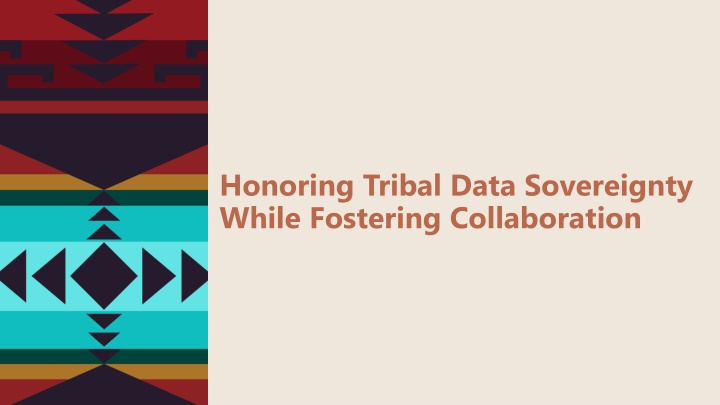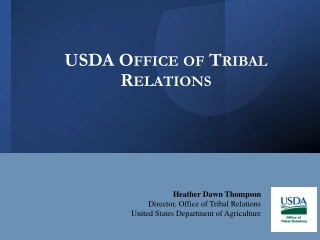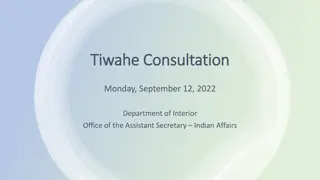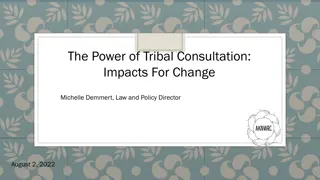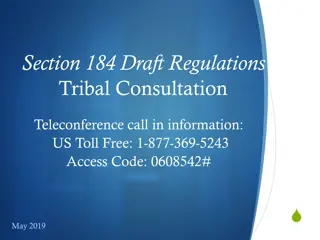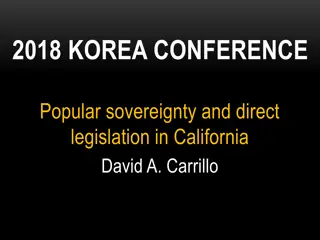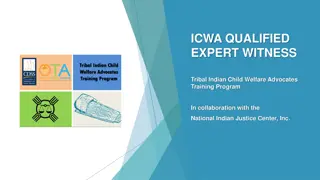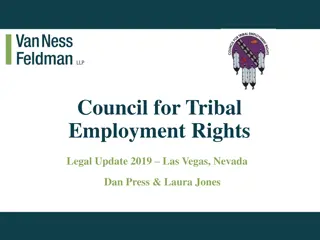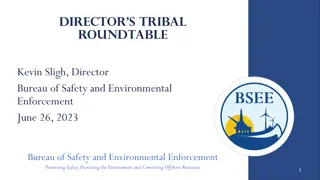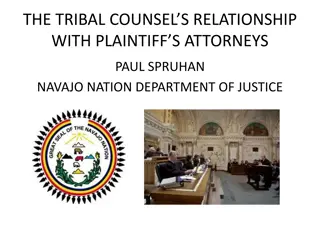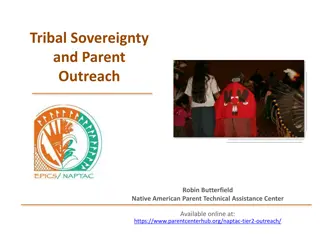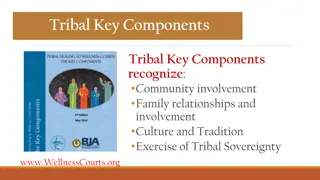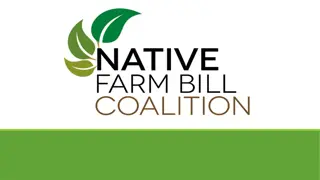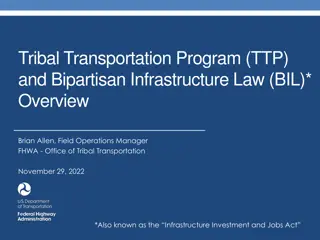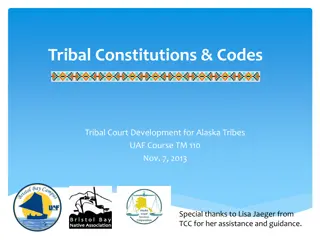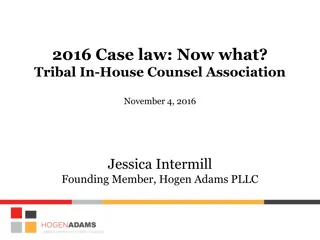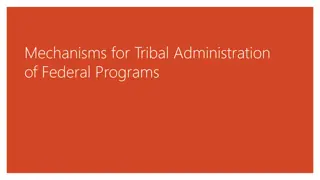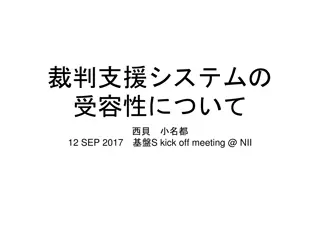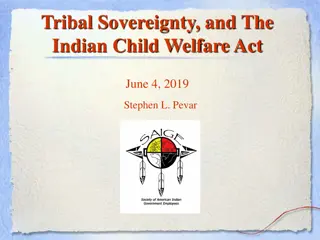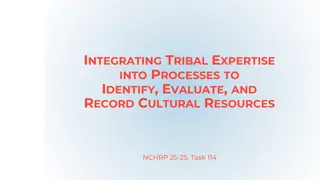Fostering Tribal Data Sovereignty in Collaborative Partnerships
Explore the significance of data sovereignty within Tribal Advisory Committees (TACs) and the Government Accountability Office (GAO), considering how tribal data sharing can be respectful of sovereignty. Delve into the impact of data on tribal communities, the unique role of the GAO, and discuss strategies to safeguard tribal data shared with the GAO. Emphasize the importance of respecting indigenous rights in data governance and sharing agreements.
Download Presentation

Please find below an Image/Link to download the presentation.
The content on the website is provided AS IS for your information and personal use only. It may not be sold, licensed, or shared on other websites without obtaining consent from the author.If you encounter any issues during the download, it is possible that the publisher has removed the file from their server.
You are allowed to download the files provided on this website for personal or commercial use, subject to the condition that they are used lawfully. All files are the property of their respective owners.
The content on the website is provided AS IS for your information and personal use only. It may not be sold, licensed, or shared on other websites without obtaining consent from the author.
E N D
Presentation Transcript
Honoring Tribal Data Sovereignty While Fostering Collaboration
What is Data Sovereignty? The United States Indigenous Data Sovereignty Network (USIDSN) defines indigenous data sovereignty as follows: Indigenous data sovereignty is the right of a nation to govern the collection, ownership, and application of its own data.
OBJECTIVES Consider the importance of data sharing. Consider what data sovereignty means for the TAC. Consider the necessity of GAO data sovereignty guidance. Explore how tribal data can be shared with and used by the GAO in a manner that honors data sovereignty.
Example of the Importance of Data to Tribes The Census is a prime example of how data can impact the citizens of tribal communities. More than $500 billion in federal funds are distributed ever year based on Census data. Some of the federal Indian programs that utilize Census data for funding distribution formulas: The Indian Housing Block Grant (IHBG) Tribal Transportation Programs (TTP) Native American Workforce Programs The Indian Health Service
GAO is unique but data sovereignty principles should still be considered GAO typically responding to Congressional requests for information Unlike data collected by Census Bureau or even BIA/IHS data is not used by GAO for funding decisions or as the official record for the federal government Data is used by GAO to influence recommendations to Congress and other agencies
For Discussion: What does data sovereignty mean to the TAC? Also, what is data? Sharing of information and knowledge?
For Discussion: Are there any steps or guidance that can be developed that help to ensure Tribal data shared with the GAO will not be used in a manner detrimental to Tribes?
For Discussion: What types of data usage agreements do Tribes currently utilize with other researchers and agencies? Would a formal process of tribal data-sharing authorization be helpful? Require original use authorization? Require subsequent authorization to utilize data for purposes other than those authorized initially?
For Discussion: Are there steps GAO can take to help ensure that data used is shared with data owners before public release of reports?
Next Steps? Creation of internal GAO guidance to assist teams working on reviews that involve the collection of information and data from Tribal Nations?
Resources http://usindigenousdata.arizona.edu/ https://fnigc.ca/ocap https://www.temanararaunga.maori.nz/ https://www.maiamnayriwingara.org/ https://www.rdalliance.org/groups/intern ational-indigenous-data-sovereignty-ig
